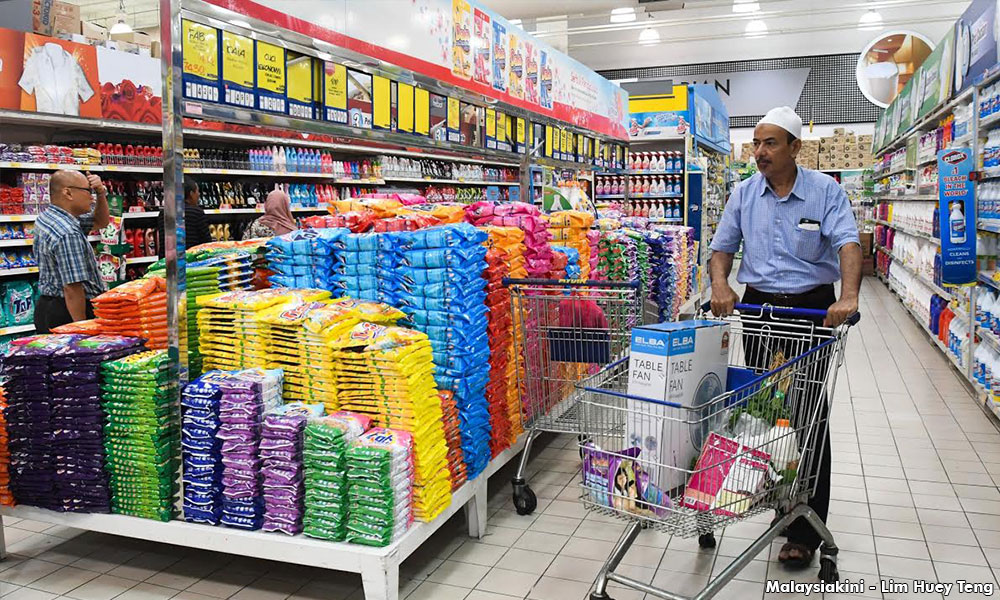
Congratulations to Pakatan Harapan for forming the new government of Malaysia. I, together with millions of other Malaysians, can now think of a better nation.
Now straight to the point. Of the ten promises made my Harapan in the election manifesto, three took my greatest interest, because they directly have an effect on the ordinary rakyat, particularly those in Sarawak and Sabah.
These are the abolition of the Goods and Services Tax (GST), the re-introduction of petrol subsidies and having equal minimum wage throughout the nation all within 100 days of Harapan rule.
All these, together with the seven other promises, will definitely help improve the rakyat’s lives. But still, I want to remind the new Harapan government about some other connected issues that they should not overlook.
While the abolition of GST and re-introduction of petrol subsidies will be greatly welcomed by the rakyat, the government needs to enforce their authority to make prices of goods and services be lowered by the business communities.
Logically, no more GST and the presence of petrol subsidies should decrease business costs, and thus facilitate the reduction of prices. The government can enforce this (reduction of prices) through one of its ministries (previously the domestic trade and consumer affairs ministry under BN).
Apart from the previous government, the traders were also to blame for the hiking of prices for goods and services. For example, the introduction of GST by the old BN government should increase prices at a 6 percent rate, but often, many goods or services were made dearer by 10 percent or even more.
Will we see a return to pre-GST prices once the GST is abolished? It’s everyone’s guess.
The same too when the BN government upped the petrol prices. The increase, for example, could be one or two percent, but the increase of prices could be up to 30, 40 percent. However, when the petrol prices dropped, the prices of goods and services remained the same.
A kilogramme of sugar increased, for instance, by fifteen or twenty sen once because of petrol prices hike but a cup of ‘kopi O’ increased by twenty sen. Logically, how many cups of ‘kopi O’ can be made with a kilo of sugar?
To make matters worse, the price of a cup of ‘kopi O’ (and a kilo of sugar) remained the same even though the price of petrol dropped.
The new government must be stringent in not only controlling prices of goods and services but also in making the traders or businesses reduce their prices, in conjunction with the abolition of GST and the re-introduction of petrol subsidies.
Under a new domestic trade and consumer affairs ministry or a similar ministry, they must ensure this matter by taking action against those who do not reduce their prices, making sure the rakyat will enjoy a much lower cost of living.
The fact that the majority of these traders and business owners are probably Harapan supporters must not stop the authorities from taking action against these opportunistic groups for the sake of the rakyat.
The equal minimum wage across Malaysia is also very welcome, after BN’s preference of having different minimum wages between Malaya (Peninsular Malaysia) and Sabah and Sarawak. But the new government must not forget about something important that had/has affected the lives of Sabahans and Sarawakians over the decades – the cabotage policy.
This policy, insisting all imported goods must be shipped to Port Klang first, before being sent to other ports in Malaysia, which was introduced in the 1980s under the current prime minister’s previous tenure, has caused disparity in prices of goods and services between Malaya and Borneo Malaysia.
The previous prime minister only ‘suspended’ it, whatever that meant but there is no confirmation whatsoever that the cabotage policy has been actually abolished. With the cabotage policy still in effect, there would still be a discrepancy in prices of goods and services in Malaya and Sabah/ Sarawak.
Therefore, I really hope the new Harapan government will make sure that the cabotage policy is no longer around. Also, the government must, under their relevant ministry, ensure there are no unscrupulous practices by traders or business owners in Sabah and Sarawak who insist that ‘here we pay more than in the Peninsular because we have to pay extra costs in shipping’.
Make sure these traders/business owners reduce their prices. Don’t let them get away just because they are possibly Harapan supporters.
I know many people would accuse me of asking too much from a new government. But these three were among the things Harapan promised to achieve within 100 days of their rule. Don’t worry, there are still 94 days to go! -Mkini


No comments:
Post a Comment
Note: Only a member of this blog may post a comment.